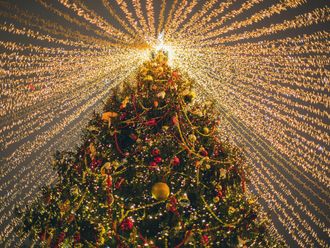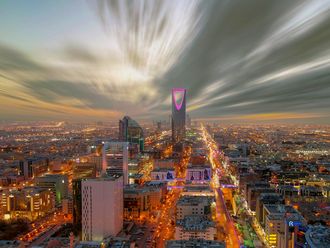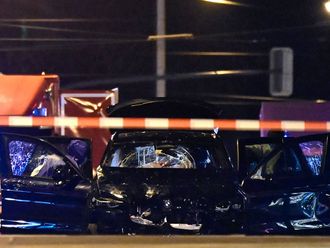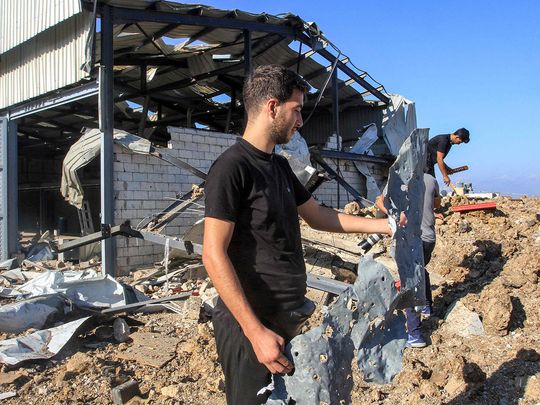
El Qraoy: Abdul-Hamid Ramadan was grief-stricken Monday after losing his wife, daughter and home in an Israeli strike a day earlier, as rescuers combed the rubble of his south Lebanon home.
In an instant, his six-storey block of flats in Ain al-Delb, near the coastal city of Sidon - largely spared in nearly year-long exchanges of fire between Israel and Hezbollah - became a pile of rubble.
"All of us were civilian families. Our neighbours are still under the rubble," said Ramadan, 60, a retired army soldier.
"I lost my daughter and I lost my wife and I lost my house," he told AFP by telephone, adding it took him 20 years to pay off the loan.
"What will I do now?"
Since last week, Israel has been pounding mainly south and east Lebanon with air strikes, saying it is targeting Hezbollah sites.
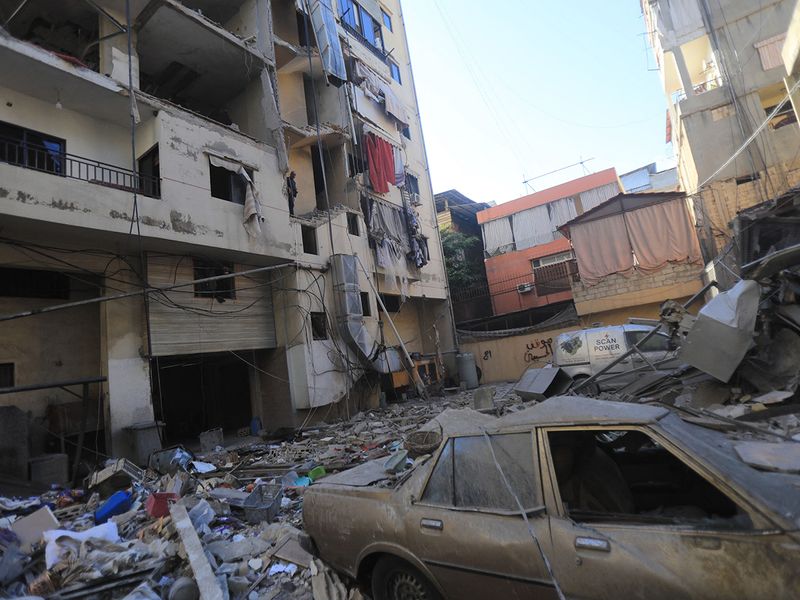
Lebanon's health ministry said Monday that 45 people were killed and 70 wounded in the Israeli strike on the building in Ain Al Delb, near the village of Qraiyeh.
Ramadan's family had been sitting together in the living room after eating lunch on Sunday. Somehow, only Ramadan and his son survived.
"My daughter Julia... was a hero. She worked, she studied, she was my confidante," Ramadan said.
In the coming days, "when it's time for lunch... I will look around and think, where is Julia?" he said.
"Where is Janan?" he added, referring to his wife.
'Screaming'
On Monday, rescuers kept up the search for anyone still under the debris, sometimes using heavy machinery to comb the enormous pile of wrecked concrete and metal.
Kitchen utensils, children's toys and schoolbooks could be seen strewn among the dirt.
Nearby, dozens of people from the neighbourhood watched on, some from nearby balconies.
A rescuer, requesting anonymity, said he and his co-workers had been working since 3:30 pm on Sunday and "there are still people under the rubble - we can't reach them".
A neighbour, also requesting anonymity, said she "heard the sound of missiles" and ran.
"We all started screaming," she added.
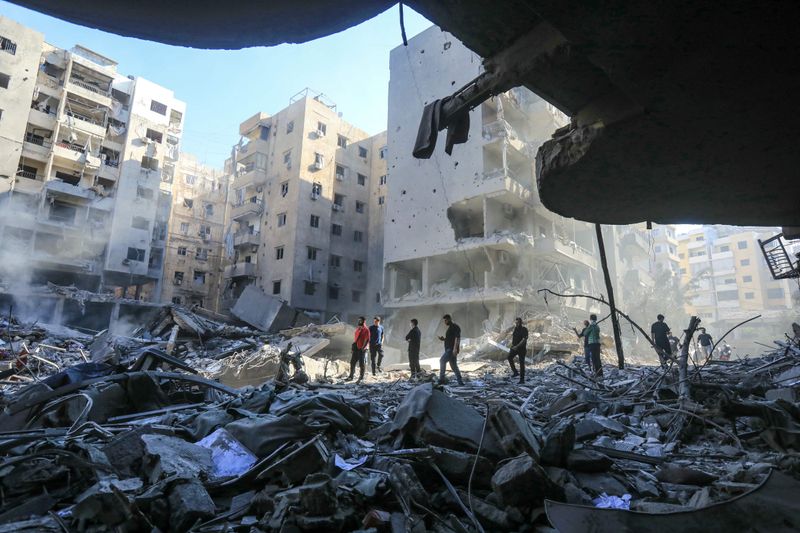
Pierre Tannous, a local official, said the building was "residential" and housed "people who'd moved from south Lebanon after 2006".
It was also home to people displaced by the recent Israeli bombardment of south Lebanon, including a large number of women and children, he added.
At the cemetery, workers were readying the foundations for dozens of graves.
"We are preparing a communal grave for the Zionist enemy's massacre - for those killed in the strike, for the families," said Ahmed Shehadeh, supervisor of the Sunni Muslim cemetery.
As ambulances arrived with the bodies for ritual washing ahead of burial, women in black wept while men tried to console each other, many overcome with grief.
Six of the bodies were laid out in a hall, wrapped in white or green, before the men one by one picked up the coffins and bore them on their shoulders for burial.


